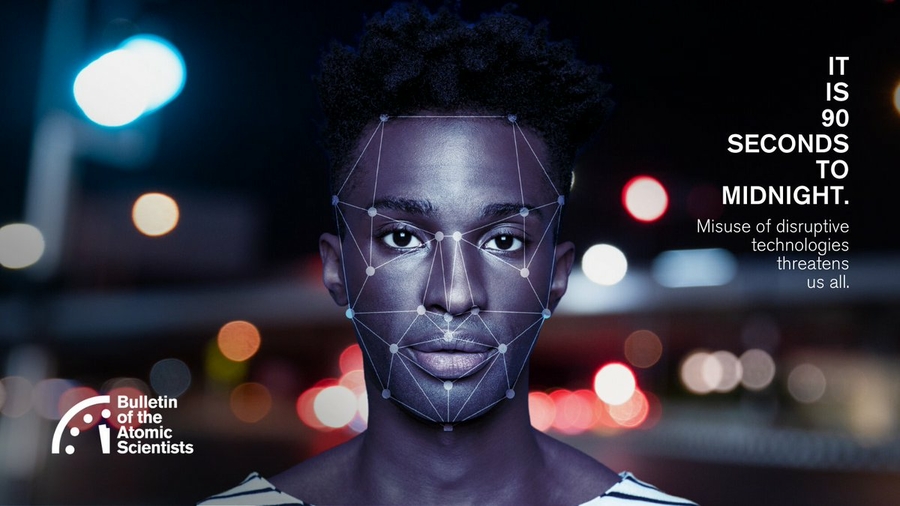The Doomsday Clock, an emblematic representation of the perceived threat of global catastrophe, now stands at an alarming 90 seconds to midnight. This stark chronicle embodies not only the imminent dangers associated with nuclear proliferation but also the existential crises prompted by climate change and technological advancement. The Bahá’í teachings, rich in their humanitarian and unifying vision for society, provide a framework for understanding and addressing these multifaceted challenges. This discourse will elucidate the Bahá’í perspective on urgency and responsibility, interlacing the concepts of global unity and spiritual transformation.
From a Bahá’í vantage point, the notion of time possesses a dual significance—both temporal and spiritual. The Doomsday Clock serves as a physical manifestation of humanity’s precarious position in relation to global existential threats. Bahá’ís believe that the passage of time should not be viewed solely as a linear progression toward an inevitable conclusion, but rather as an opportunity for cognitive and ethical growth. In this context, the ticking clock acts as a clarion call, urging mankind towards collective action and spiritual awakening.
One of the core tenets of Bahá’í teachings is the oneness of humanity. This principle underscores the belief that all individuals, regardless of nationality, race, or religion, are part of a single human family. In light of the Doomsday Clock’s current stance, it becomes imperative for humanity to transcend divisive ideologies and work collaboratively to mitigate looming threats. As the clock draws closer to midnight, the existential risks we face necessitate an unprecedented level of cooperation and solidarity.
Bahá’í teachings elucidate the significance of knowledge and education as instruments for societal transformation. In an age characterized by misinformation and division, the acquisition of knowledge emerges as a potent antidote to the tribulations that beset humanity. By fostering a culture of critical thinking and ethical responsibility, Bahá’í communities aspire to cultivate a populace that not only acknowledges these threats but actively seeks solutions. Education, therefore, is not merely a prerequisite for progress but a moral imperative that equips individuals to engage meaningfully with the world.
The teachings also highlight the importance of ethical and moral advancement. As society grapples with the ramifications of technological advancements—ranging from artificial intelligence to genetic editing—ethical considerations must take precedence. The Bahá’í stance on morality encompasses the idea that progress devoid of ethical scrutiny is not true advancement. Thus, in contemplating the implications of the Doomsday Clock, it becomes crucial to infuse discussions on innovation with moral frameworks that prioritize the well-being of all.
Moreover, Bahá’í perspectives on justice and equity are particularly salient in this discourse. The Doomsday Clock symbolizes not only existential threats but also the repercussions of systemic inequalities that exacerbate vulnerability. The Bahá’í Faith advocates for social justice, emphasizing that genuine progress is predicated upon addressing disparities that leave certain populations at risk. In this era where clocks tick amid global crises, promoting equity becomes vital for ensuring that solutions are inclusive and address the needs of the most marginalized.
Another vital aspect of Bahá’í teachings is the pursuit of peace—a concept synonymous with stability. The current positioning of the Doomsday Clock implores humanity to consider the ramifications of ongoing conflicts and their potential to exacerbate global tensions. Bahá’í writings articulate that true peace is not merely the absence of war but the presence of justice and goodwill among people. The responsibility to foster peace resonates deeply within the framework of Bahá’í principles, prompting adherents to engage in dialogue, understanding, and reconciliation to counteract divisive narratives.
The intersection of spirituality and action is also pivotal within the Bahá’í paradigm. Spiritual teachings inspire individuals to transcend apathy and engage actively in social transformation. The urgent call of the Doomsday Clock necessitates a reawakening of spiritual consciousness—one that transcends individual concerns and recognizes the interconnectedness of all life. This ethos encourages Bahá’ís to channel their spiritual insights into tangible actions that can mitigate the threats reflected on the Doomsday Clock.
Envisioning a future where the clock does not symbolize impending doom but rather an awakening to collective responsibility entails a commitment to service. Bahá’í principles advocate for service to humanity as a pathway to fulfillment—a notion that resonates profoundly when contemplating the global crises we face. Integral to this service is the idea of selflessness, urging individuals to prioritize the welfare of others, thereby fostering a culture of altruism that can counterbalance the threats represented by the clock.
In conclusion, the Bahá’í teachings offer a multifaceted lens through which to examine the implications of the Doomsday Clock at its current, dire status. They emphasize the necessity for global unity, ethical progress, and the pursuit of justice. The lessons inherent in the Bahá’í Faith challenge humanity to rise to the occasion, confronting existential threats not with despair but with hope and proactive engagement. By integrating these principles into daily lives, individuals can contribute to a collective movement away from destruction and toward a future characterized by harmony, resilience, and transcendence of the looming clock’s shadow.
